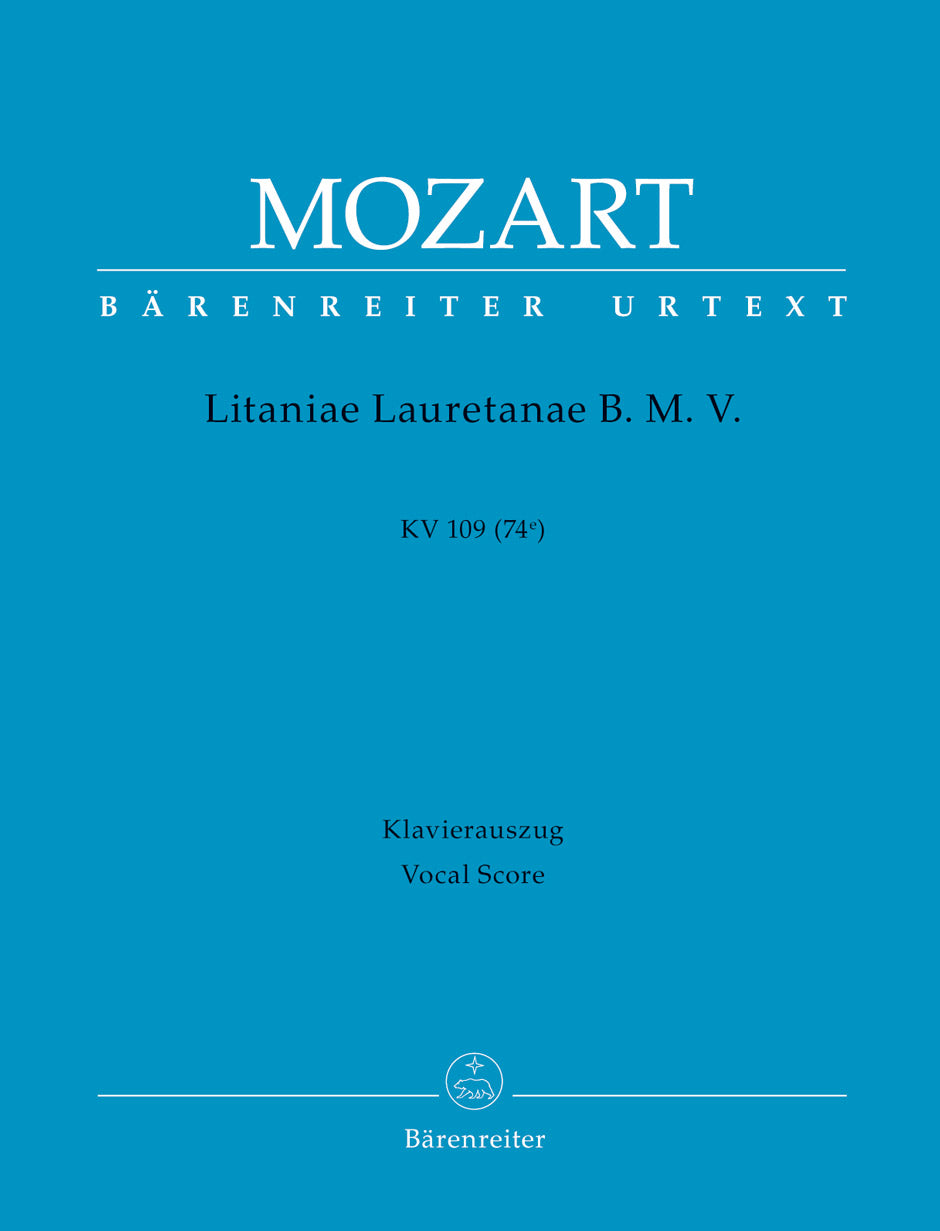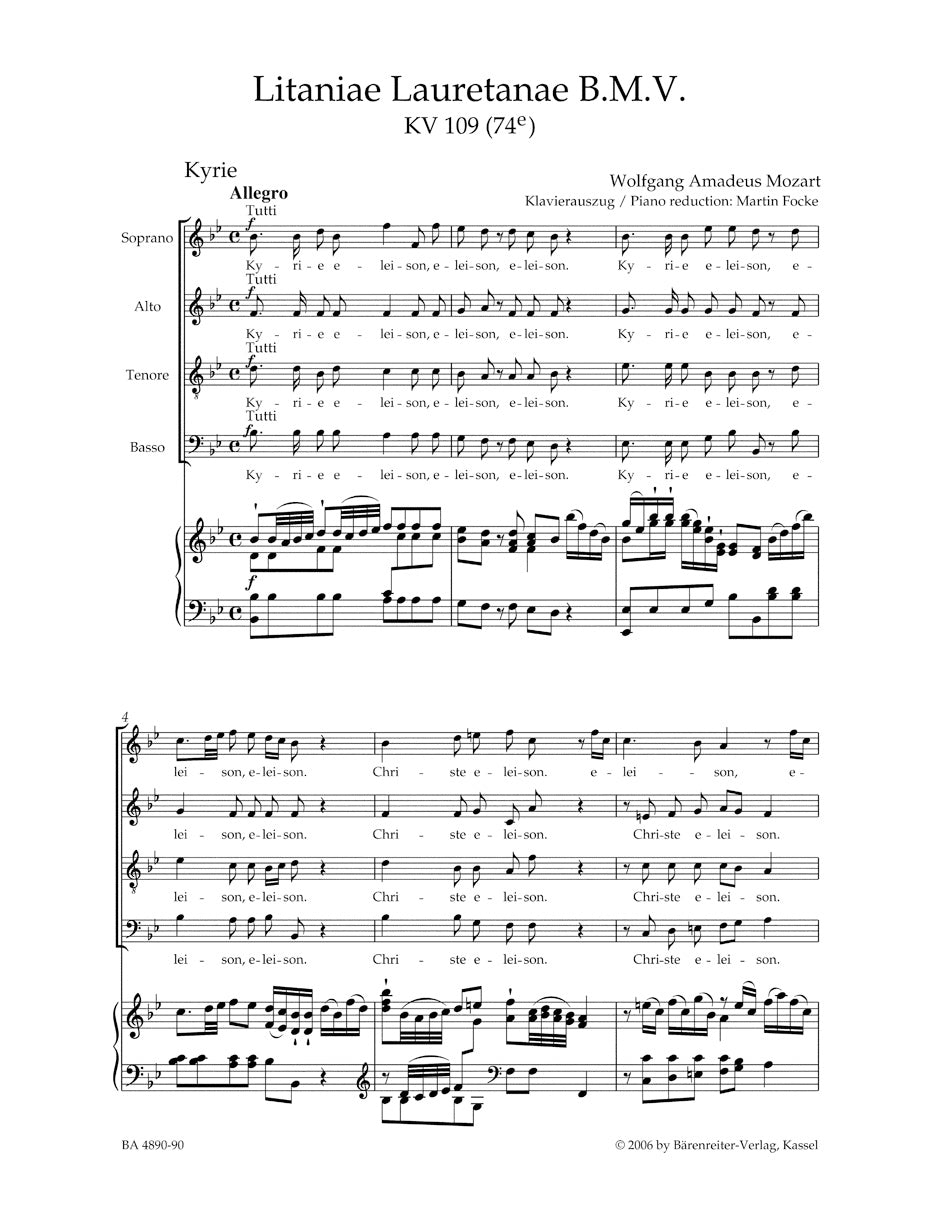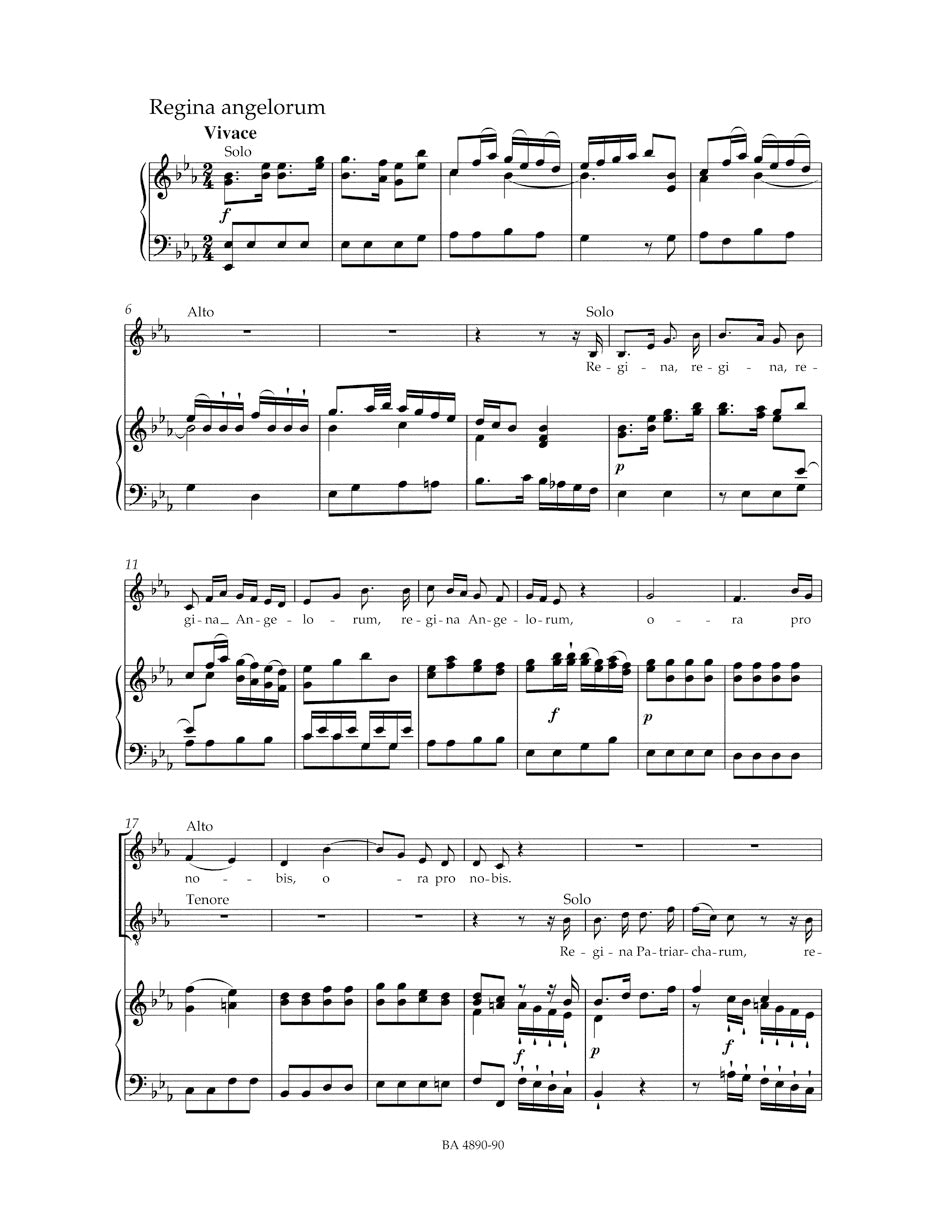


BARENREITER - 345062
Mozart Litaniae Lauretanae B. M. V. B-flat major K. 109 (74e)
Composer: Wolfgang Amadeus Mozart
Publisher: Bärenreiter
Format: Choral Score
Binding: Stapled
Dimensions: 10.6 in x 7.5 in
Pages: 20
Mozart Litaniae Lauretanae B. M. V. B-flat major K. 109 (74e)
Juilliard Store
144 West 66th Street
New York NY 10023
United States
Choose options
Mozart Litaniae Lauretanae B. M. V. B-flat major K. 109 (74e)
Juilliard Store
144 West 66th Street
New York NY 10023
United States
Mozart Litaniae Lauretanae B. M. V. B-flat major K. 109 (74e)
Juilliard Store
144 West 66th Street
New York NY 10023
United States
Editor: Federhofer, Hellmut
Arranger: Focke, Martin
Orchestral scoring : SSolo/ASolo/TSolo/BSolo/Mixed choir-SATB/3trombone/2V/Bc(Vc/double bass/bassoon/Org)
Language(s) of work: L
Language(s) of text: L
Product format: vocal score, Urtext edition
Binding: Stapled
Pages / Format: V, 20 - 27,0 x 19,0 cm
The form of the Litany was found already in early Christian times. Like its name suggests, it is a prayer of supplication, with a steady repetition of acclamations; however, with regard to its manner of performance, it is also a kind of responsory prayer. While the Loretian Litany is an eloquent expression of Marian devotion, the Sacramental Litany is a testimony of praise and veneration of the Eucharist and a recognition of its salvational effect.
